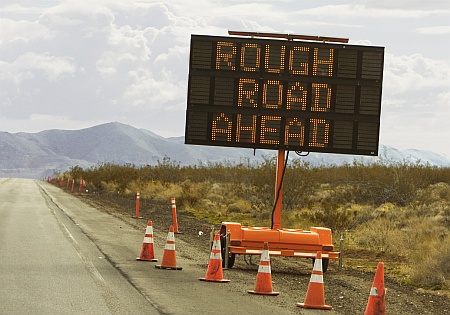ATA takes position on highway funding issue
With a national transportation infrastructure funding crisis looming, American Transportation Associations (ATA) leadership recently endorsed a menu of revenue alternatives.
“Several months ago, ATA’s leaders convened a task force with the purpose of evaluating alternatives in addition to the federal fuel tax for financing the nation’s roads and bridges,” ATA Chairman Phil Byrd, president and CEO of Bulldog Hiway Express, Charleston, South Carolina, said. “Today, this association reaffirms our commitment to a strong, well-funded federal highway program.”
“When the process began, we had a list of more than 30 potential funding sources,” said ATA Vice Chairman Pat Thomas, vice president of UPS Inc., and vice chairman of the funding task force. “What we’ve narrowed that down to is a list of options that could provide the resources needed to address the critical highway and bridge upgrades we need.”
ATA’s funding menu includes the following:
- Indexing of the fuel tax based on price, CPI or the estimated impact of improved fuel efficiency;
- Proceeds from repatriation of overseas capital;
- Issuance of Treasury bonds subsidized with revenue from indexing the fuel tax;
- A new annual “highway access fee” for all motorists;
- Use of royalties from new oil and gas leases;
- A per-barrel tax on imported oil and domestic crude production;
- And finally, as a last resort, a transfer from the General Fund to ensure short-term Highway Trust Fund stability.
“While we continue to believe that the fuel tax is the fairest, most efficient method of funding our highway system, we also recognize the political difficulties of getting an increase through Congress,” ATA President and CEO Bill Graves said. “The work of this task force lays out what is acceptable to the trucking industry, and what should be acceptable to our political leaders to address the Highway Trust Fund crisis.”
The Department of Transportation’s Highway Trust Fund has been projected to run out of money as early as August without congressional action.
The traditional source of money for road and transit projects is the federal gas tax, which is currently priced at 18.4 cents-per-gallon. That tax has not been increased since 1993, however, and the legislation that authorizes the government to collect it is scheduled to expire on Sept. 30.
The Senate has begun working on a bill that would extend the authorization to collect the gas tax and provide $265 billion for road and transit projects over the next six years. The House has not yet unveiled a bill, however.
“Nothing is happening in the House when it comes to the highway bill,” said former Transportation Secretary Ray LaHood, who recently joined infrastructure investment firm Meridiam North America as a senior advisor. “Nothing introduced, nothing debated, no discussion and we’re in a mess.”
LaHood and other transportation advocates have pushed Congress to consider increasing the gas tax for first time in more than 20 years. The gas tax currently brings in about $34 billion, but the transportation bill that is expiring in the fall includes more than $50 billion of spending per year.
LaHood said that even more money than the approximately $16 billion shortfall was needed to repair the nation’s infrastructure.
“This very, very tough winter that we all experienced has created an America that’s one big pothole,” he said.
“We need more revenue,” LaHood continued. “We need to take the pot of money that built the interstate, that built all of this infrastructure that’s now aging and falling apart and replenish it.”
Former Pennsylvania Gov. Ed Rendell (D) said that it was time for lawmakers to put the same energy into renewing road and transit funding, despite the fact that the price tag would be significantly higher.
Some conservative groups, though, argue that the funding impasse is an opportunity for Congress to remove itself from process of paying for roads and bridges altogether, through a process that is known in transportation circles as “devolution.”
The Heritage Action group said it was opposed to the Senate’s measure when it was released because it preserved the federal transportation funding system that has been in place since the gas tax was first implemented in the 1930s.
Heritage Action is supporting a measure that was introduced last year by Sen. Mike Lee (R-Utah) that drastically reduces the gas tax to push transportation spending to states.
In lieu of the current gas tax system, the TEA Act would transfer authority over federal highways and transit programs to states and replace current congressional appropriations with block grants.






